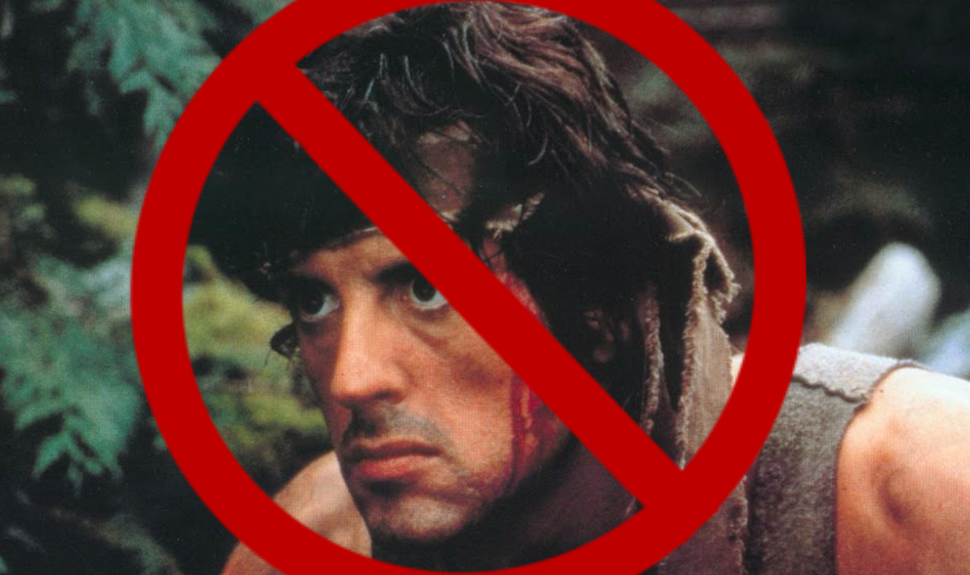In the wake of the two recent tragedies in Baton Rouge, Louisiana and Dallas, Texas — where police officers were senselessly shot and murdered by two young men — two young military veterans, an old stereotype has, unfortunately, reared its ugly head once again.
It’s the one that’s often referred to as the “Rambo narrative”, the sense that a good portion of military veterans who come back and assimilate into civilian life are “ticking time bombs” who can explode into rage and violence at any second.
If you’re not familiar, John Rambo was a fictitious character played by Sylvester Stallone in a 1980s action movie called First Blood, where the main character — a Vietnam War vet — seeks revenge on a police chief who abused him.
This stereotype is like all over stereotypes, however, in that it’s utter garbage, and a recent New York Times story (the newspaper, let’s face it, of record in the United States) showcased the evidence — the truth — that tears this harmful and hideous label to shreds.
In the case of the mass shootings of the last few weeks that targeted and assassinated cops, these are the facts:
-
While the gunmen were military veterans, neither of them saw any combat experience, nor did they suffer from PTSD.
-
There is absolutely no data that military veterans are more likely to commit crimes.
-
Four of the eight officers killed were military veterans themselves
“The truth is that veterans are much more likely to be the rescuer than the assailant, a U.S. Army and Iraq War veteran, Paul Rieckhoff told The Grey Lady. “But there is a lazy stereotype that we come back as damaged souls.”
More from the NYT:
On Monday, veterans sizing up the men’s backgrounds said they did not see war experience as a factor in the attacks.
“Maybe there is something in the fact that they both served in the military, but it obviously doesn’t have anything to do with combat,” said Matt Gallagher, an Iraq war veteran and the author of the novel “Youngblood.” “The problem is the headlines don’t leave much room for nuance. The public sees veterans one of three ways: We are all heroes, we are all victims, or we are all monsters.”
In a public survey the group conducted this year, he said, more than 80 percent of respondents said veterans suffered from mental health problems.
“Recent events only reinforce those perceptions,” he said. “If the American people are afraid of us instead of seeing us as an asset, it makes it more difficult for everyone.”
The only real role the United States military played in the case of Dallas and Baton Rouge was this: they trained the two deranged murderers, and trained them well. Their acumen in handling a gun made it more difficult for them to be stopped.
This, of course, is no fault of our armed forces. No fingers should be pointed. They, just like us, don’t possess the ability to look into the future and forecast, then weed out a few members who showed perfectly good conduct during their service (one even received a medal).
Just like in any walk of life, in an industry, any social class or income level there are people who, for an odd reason or many odd reasons, get up in the morning one day, leave their home, and do bad things. Sometimes those things are just rotten, sometimes they’re worse than that, and sometimes they’re deadly.
We humans are complicated — no, that’s far too elementary, incredibly complex and enigmatic creatures –and the blueprint for our actions cannot be contained on a notecard. Rather, it necessitates volumes. Perhaps libraries with ladders and marble columns and an old lady who loves to “shush”.
In statistics, the phrase goes like this: “correlation does not imply causation.”
The same goes for our behavior, both healthy and ill. Just because there is a correlation, or a relationship between two things doesn’t mean one causes the other. We are people after all, imperfect beings, no matter what our background, and our humanity needs to be examined — not stamped.
Whether fraternizing with military veterans, civilians or otherwise, listen to the little Danish philosopher in your head before you rush to judgment, and heed his song:
“If you label me, you negate me.”




































